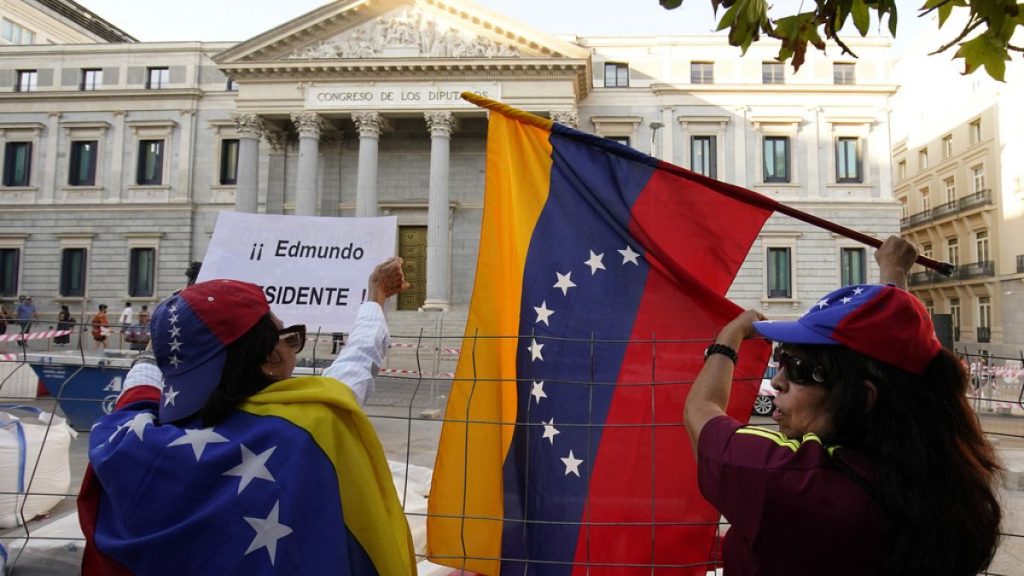Edmundo González, an exiled opposition leader from Venezuela, arrived in Spain after fleeing his home country on a Spanish army jet following a hotly contested presidential election that many foreign governments believe he won. Despite Prime Minister Pedro Sánchez’s disapproval, Spain’s Congress of Deputies voted in favor of recognizing González as the legitimate winner of the disputed presidential election. The motion was largely supported by opposition lawmakers, including the conservative People’s Party, who proposed the debate. Sánchez stated that Madrid would not recognize González’s victory and instead would work with Brussels to find a solution by the end of the year.
González’s arrival in Spain was part of a negotiated deal with the Maduro government in Venezuela, with González claiming that his departure from Caracas was surrounded by pressure, coercion, and threats from Maduro’s regime. Hundreds of people gathered outside the parliament in Madrid to support the proposal to recognize González as the legitimate winner of the election, while the exiled former mayor of Caracas, Antonio Ledezma, applauded the decision in the parliament’s guest gallery. Despite calls for recognition, Sánchez stuck to his position, demanding the release of detailed electoral records in the presence of an EU mediator before recognizing a winner.
In the July presidential elections in Venezuela, González stood in for opposition leader Maria Corina Machado, who had been banned from running. Despite being relatively unknown to most Venezuelans, González quickly gained support from millions who were desperate for change after a decade-long economic crisis. While incumbent President Maduro was declared the winner of the July vote, most Western governments, including Spain, have not recognized his victory and are instead insisting on the publication of a breakdown of votes. Tally sheets collected by opposition volunteers from over two-thirds of the electronic voting machines indicated that González had won by a sizable margin.
In previous presidential elections in Venezuela, the National Electoral Council had published online the results of each of the more than 30,000 voting machines. However, in the latest election, controlled by the Maduro government, no data was released, with authorities blaming an alleged cyberattack from North Macedonia organized by opponents. Despite the lack of transparency, González’s supporters continue to push for his recognition as the legitimate winner of the election. While Sánchez emphasized the humanitarian gesture of granting asylum to González, he reiterated the need for a transparent resolution to the contested election before Spain formally recognizes a winner.
The international community’s stance on the Venezuela election highlights the ongoing political and humanitarian crisis in the country. With a disputed election outcome and widespread economic hardship, the situation in Venezuela has drawn the attention and concern of many countries around the world. The support for González as the legitimate winner of the election reflects a broader sentiment among many governments that change is needed in Venezuela to address the challenges facing its people. As calls for accountability and transparency continue to grow, the resolution of the election dispute remains crucial in determining the path forward for Venezuela and its citizens.













